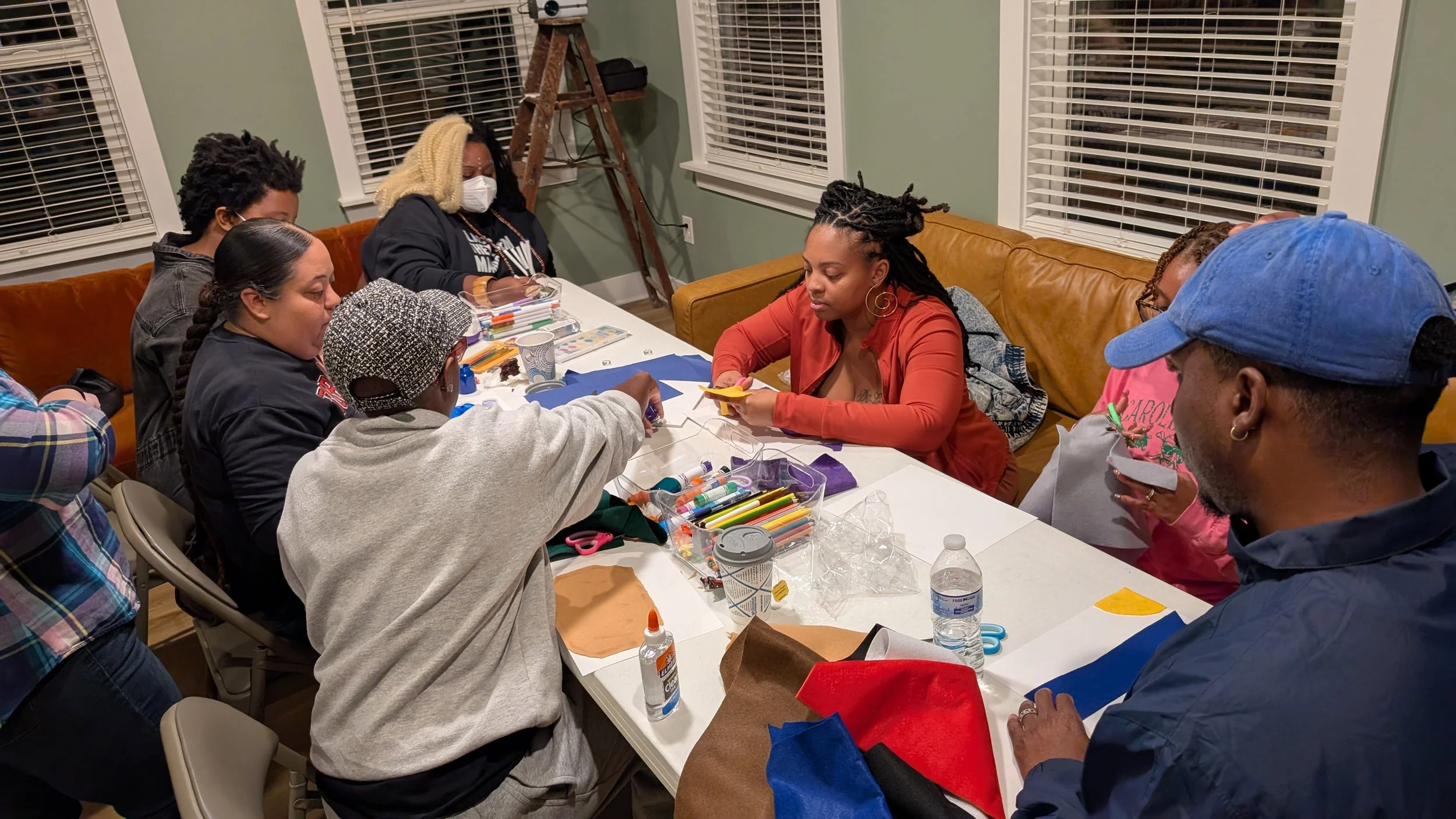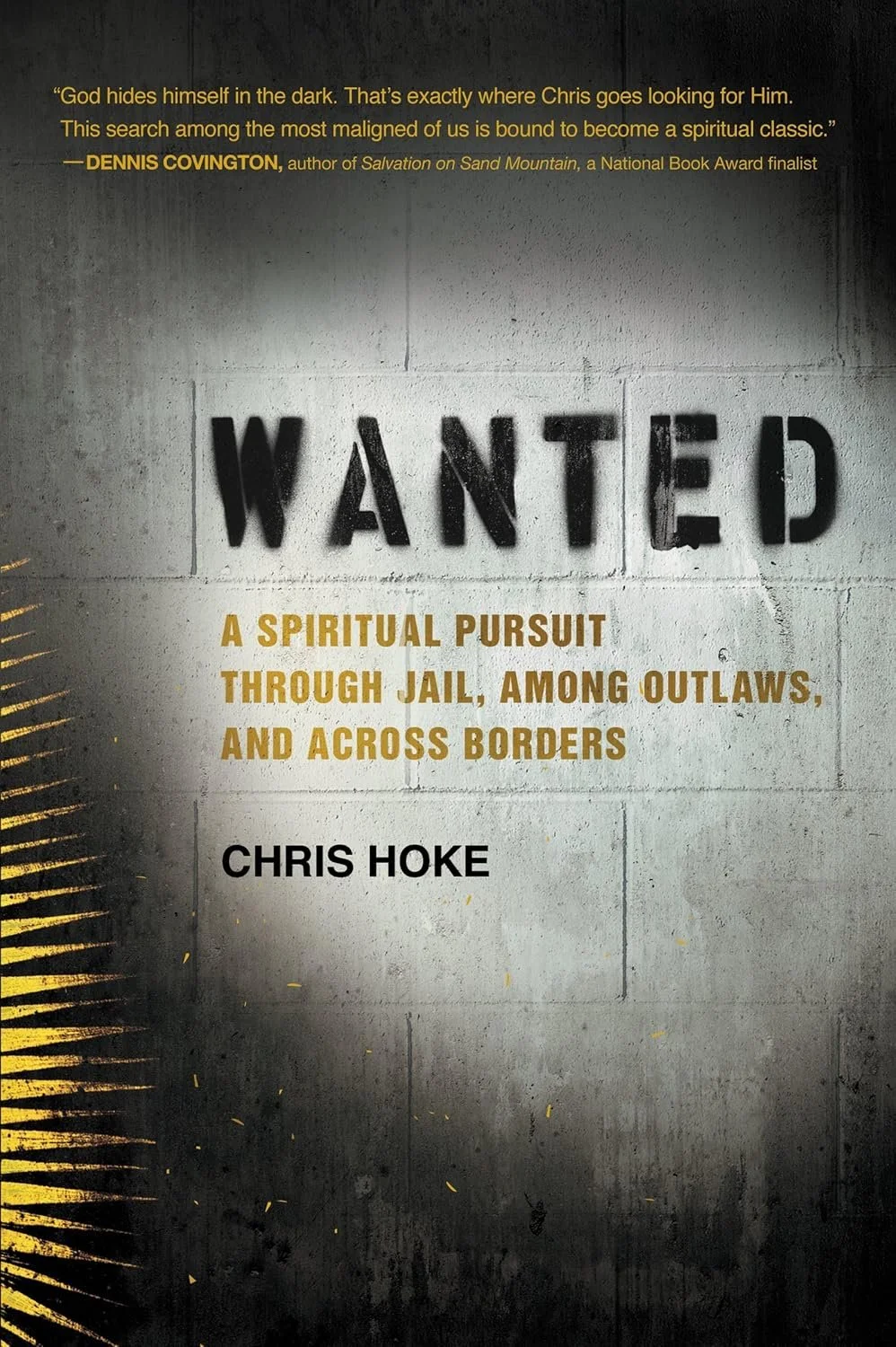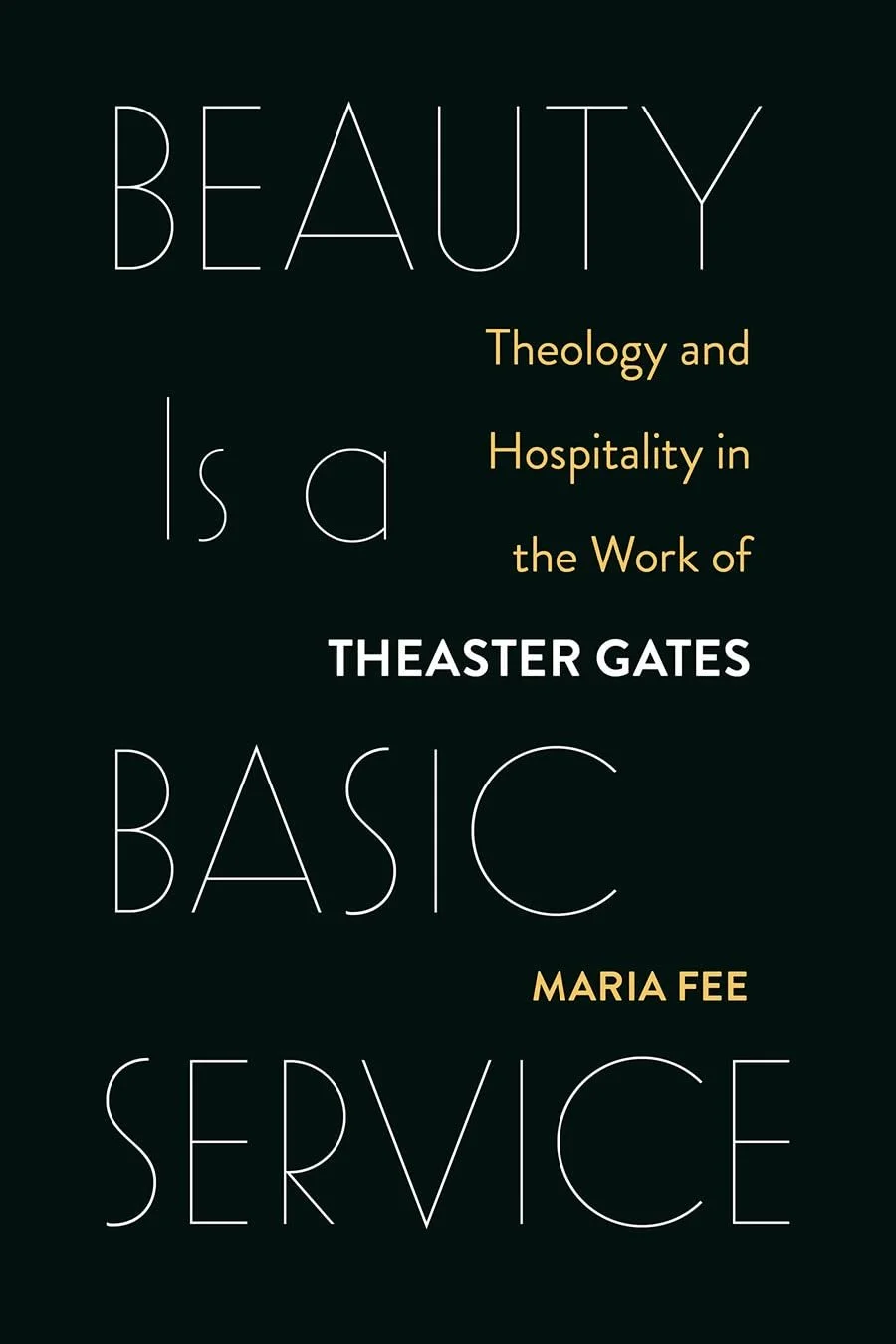Neighborhood Chaplains
Ending Week 6 of BLK South’s “Soulwork: A Community-Led Theological Lab” with a bond fire in our backyard. (Oct. 13, 2025)
Erin Dooley is the co-founder of BLK South. With over twenty years in nonprofit leadership, pastoral ministry, and strategic communications, she has led numerous faith-based and community initiatives. A Master of Community Leadership candidate at Eden Theological Seminary (graduating spring 2026), Erin’s work explores the intersection of theology, human behavior, and social change—creating spaces of healing and belonging for historically marginalized communities. Learn More
I’m not exactly sure where we first heard the term neighborhood chaplain or why it’s been standing out to me so much these days, but lately, it just won’t leave me alone.
Over the last couple of weeks, we’ve been sitting with this idea—what does it mean to be a neighborhood chaplain? What does it look like to develop others who share that same call? People who love and care for their place and the people in it. People who serve quietly and consistently, who see their neighborhood as sacred ground. People who feel called not to escape their community, but to root themselves more deeply in it.
Recently, we were asked to step into the role of chaplains for students at North Carolina Central University (NCCU). The need there is great—more than 150 students are experiencing homelessness. Some are unhoused in the traditional sense, while others have nowhere to go during the holidays, sleep in their cars during the six-week winter break, or avoid going home because they don’t feel safe there. These students need friends. They need community. They need a safe place to simply be.
They need people who will tend to their souls—not with pressure to convert or conform, but with care and compassion. Chaplains who won’t pray the gay away or create more harm in the name of help. There are also over 30 students expecting to deliver children within the next year. The need is both spiritual and physical—and it’s real.
This is in addition to the Grant Street Community we’re walking alongside and our role as Social Justice and Outreach Coordinators at Monument of Faith Church. I don’t want to say this in a way that feels overwhelming, but the truth is, the need is everywhere. Hearing about NCCU reminded us that the entire neighborhood is in need of chaplains.
There are unhoused neighbors who don’t just need shelter but real help; NCCU students seeking belonging; elders weary from broken promises who simply want people to keep their word; families navigating transition; and people across the spiritual spectrum still trying to make sense of it all. What if we began to see the neighborhood itself as a kind of church—a place to love, serve, and care for people as they are? What if our neighbors weren’t strangers living behind closed doors, but humans given to us by the Divine to be in mutual care with?
Land Mapping Through Art: each person drew a map of their “place of belonging” — where they feel rooted. (Oct. 13, 2025)
That kind of care doesn’t mean trying to change someone or give them what we think they need. It means slowing down enough to listen. To hear what people actually say they want and respond with love. Often, the needs are simple: a friend, a moment of rest, steady work, soap, deodorant, a brush. Beneath it all, there’s a longing for safety—not just physical safety, but the safety of being known and loved.
That’s the work before us—to step beyond the four walls of a church or organization and embody what it means to be present, to show up, to stay. Maybe a more accurate term than “Co-Founders of BLK South” or “Community Developers” is just Neighborhood Chaplains—folks willing to roll up our sleeves and join our neighbors in getting our collective hands dirty.
My mom loves a good espionage movie. She’s especially into the Mission: Impossible series, and in some ways, that’s the perfect metaphor for what it feels like starting your own nonprofit from the ground up—our own version of an impossible mission. Tom Cruise would often ask his team to do something that seemed absolutely absurd—too hard, too impossible. But what would he say after each impossible ask?
“She’ll figure it out!”
“He’ll be there!”
“It’ll happen!”
We’re in the final months of 2025. Not all the funds that we need to do this work full time have come through yet—but one thing’s for sure and two things are for certain: we’ll figure it out!
Reflection Questions:
Where might you be called to simply show up and care for the people around you?
What would it look like to rebuild trust in your community through small, consistent acts of care?






